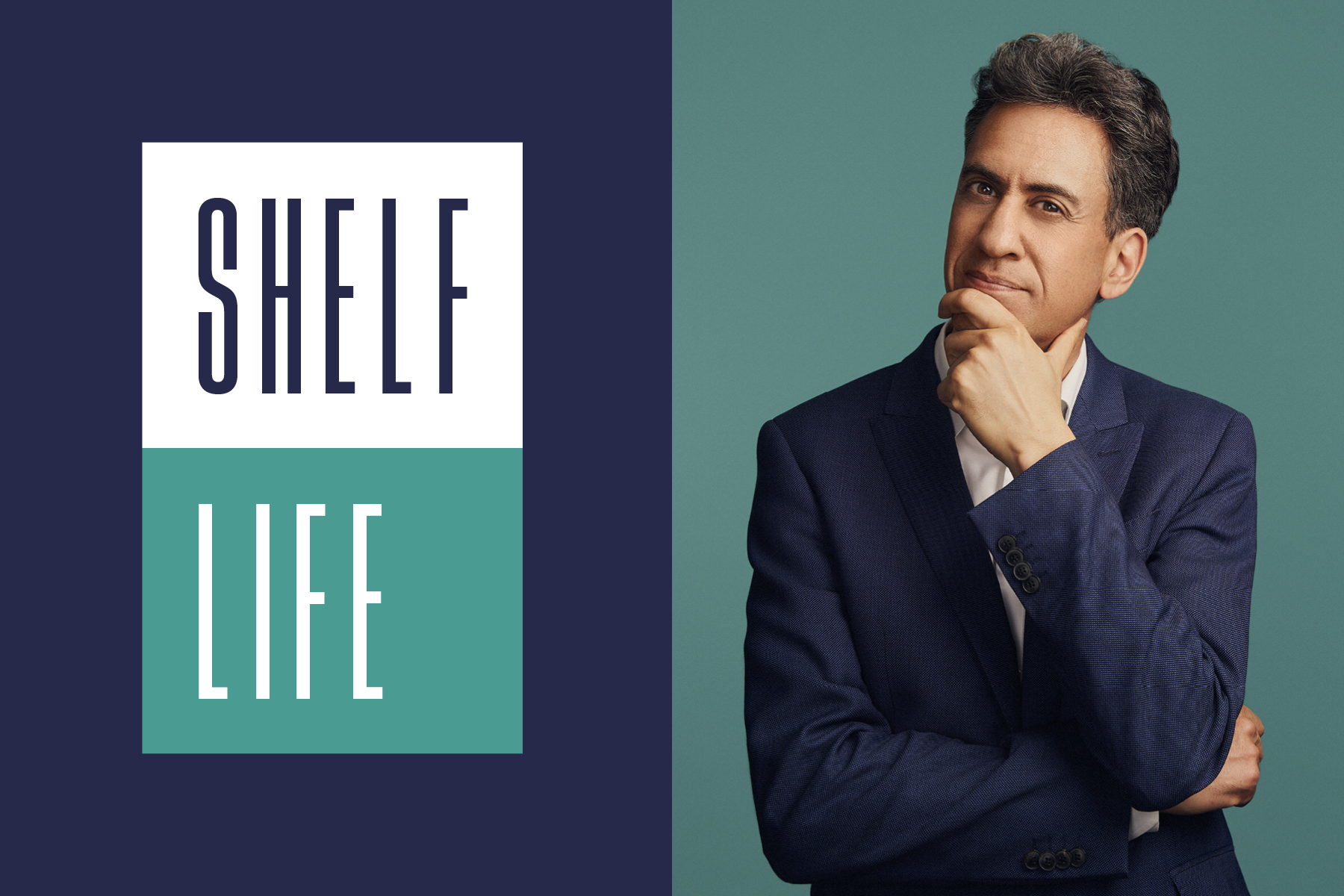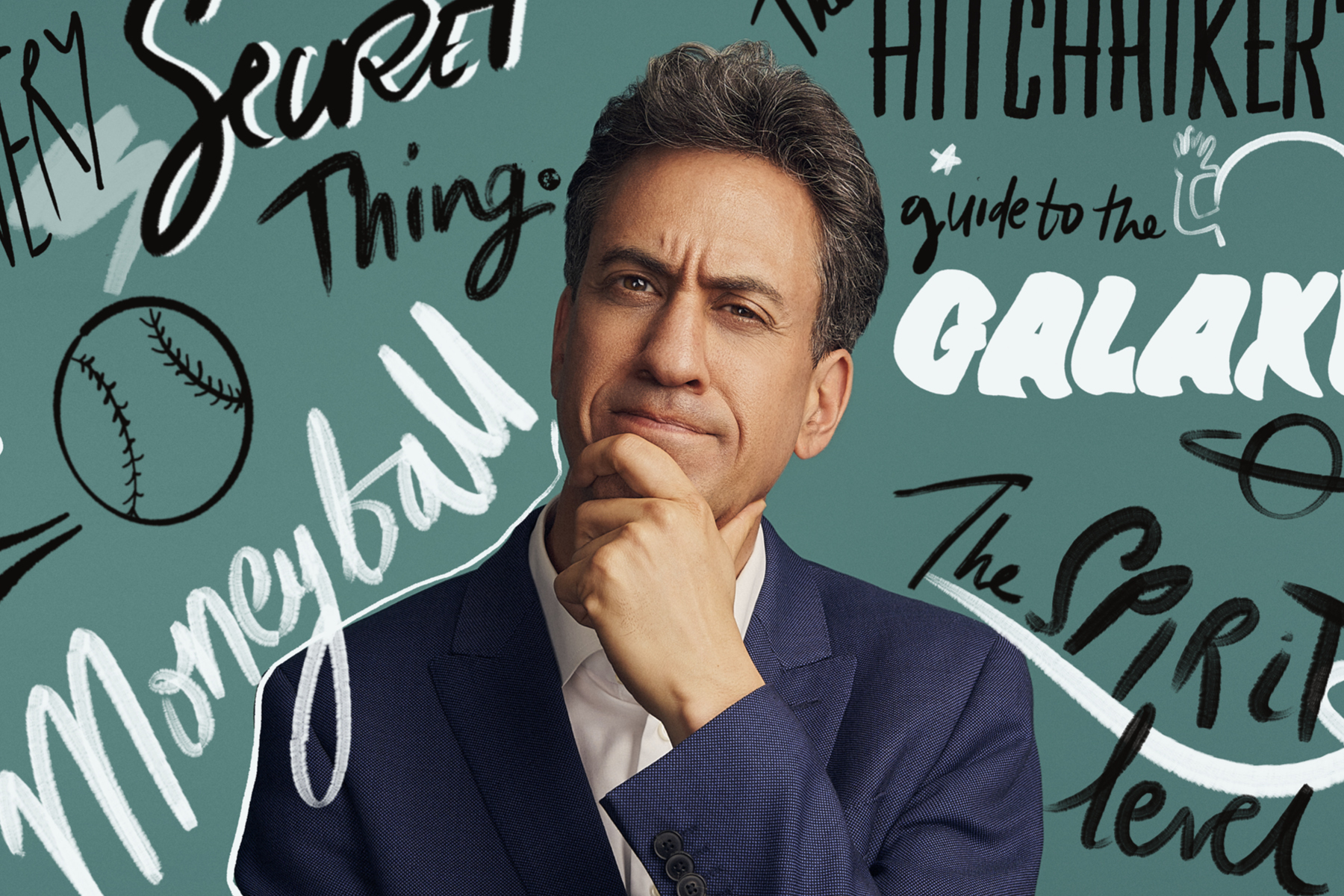
- Home |
- Search Results |
- Ed Miliband on five books that have shaped his life
This is an oral story rather than a book, but when I was a little boy and we lived in Leeds, my father used to make up these stories about two sheep in the Yorkshire moors called Boo Boo and Hee Hee, who had magical adventures. And so when I had my two boys, I started telling them Boo Boo and Hee Hee stories too.
There’s all sort of characters in Boo Boo and Hee Hee, including a magician who is rather useless and spends all his time watching cricket. My sons are 10 and 11 now, so I can still get away with telling them these stories but they’ll get to an age soon where they don’t want to hear it anymore, which is sad. What I love about it is that, as an adult, it can be quite hard to let your imagination run riot, and this puts you under quite a lot of pressure to make the story funny and exciting. It’s fun.
I was quite a nerdy teen really, which is why I loved Hitchhiker’s Guide to the Galaxy (1979). Douglas Adams was such a genius, wasn’t he? The babel fish and Marvin the Paranoid Android. It’s sci-fi, but there’s so much emotion in it. It was a big highlight of my life when I met Zaphod Beeblebrox (Mark Wing-Davey) at a party. I think I was one of many people who said to him: where’s your second head?!
I think fiction can definitely be an escape mechanism from politics. Sometimes I can get really into thrillers and mysteries. I think my wife would say I should probably read more fiction. Then you get novels at an intersection of politics, like Dave Eggers’ The Circle, which I really liked. Bleak House by Dickens was another one: it has a reputation as hard work but I flew through it as a kid.
'My mum was in hiding during the Second World War; my dad fled the Nazis with his father.'
Every Secret Thing (1997) is by Gillian Slovo, who is a very successful novelist but wrote this non-fiction book about her parents [anti-apartheid campaigners Joe Slovo and Ruth First], and her search for her mother’s killer in South Africa.
I met Ruth just a few months before she was murdered by the secret police, and when this book came out I was incredibly moved reading about the sacrifices she and Joe Slovo made, and by the horrendous pain it caused for Gillian and her family. And then there's this incredible forgiveness she has for the person she tracked down who was part of the killing.
Did Gillian’s story make me think of my own parents? I don't know, but there is definitely a shared experience there of being the child of refugees. My parents gave me this sense that you have a duty to leave the world a better place than you found it, which I think was partly borne of their wartime experiences. My mum was in hiding during the Second World War; my dad fled the Nazis with his father. It wasn't like they talked about it very much, but it was in the background and part of the atmosphere, which I am sure would have been the same for Gillian.

I could have picked any Michael Lewis book for this list, but I've gone for Moneyball (2003), probably because I'm a big baseball fan after living in America as a kid, so this one ticks every box. It's also about markets and the way markets fail – in this case, the market for baseball players. It has this incredibly compelling character at the centre of it, Billy Beane, who picks players – and maybe this says something about where my sympathies lie – who are ‘flawed’, which means the market undervalues them.
'Political memoirs are a bit backwards-looking, aren't they?'
When I became Labour leader in 2010 I bought a copy of The Spirit Level (2009) by Kate Pickett and Richard Wilkinson for everyone in my office. It’s such a compelling book about inequality, and how more equal societies are happier societies, more secure societies and healthier societies. It’s saying: let's raise our sights, another world is possible, we made our institutions so we can remake our institutions. One thing it was ahead of its time in discussing was mental health, and something I argue for in Go Big is not just measuring our society by GDP, but by wellbeing. I think people are much more up for that conversation than they were in the past.
Did The Spirit Level play a role in the manifesto I put the country? Maybe it should have played more of a role! I think you can have an instinct that you want to live in a more equal society, but this book gave me more evidence why this should be the case. I think it shaped quite a lot of my outlook and gave me confidence.
I didn't think about writing a political memoir instead of Go Big. I don’t mean to be rude towards people who have done them, but they tend to be quite backwards-looking don't they? What I care about is looking forward. That’s what I try and do in the book: draw on my experience, but speak to the future. That’s the idea, at least.
Go Big : 20 Bold Solutions to Fix Our World by Ed Miliband is out now.
What did you think of this article? Let us know at editor@penguinrandomhouse.co.uk for a chance to appear in our reader’s letter page.
Image: Stuart Simpson / Penguin
Illustrations: Alicia Fernandes / Penguin